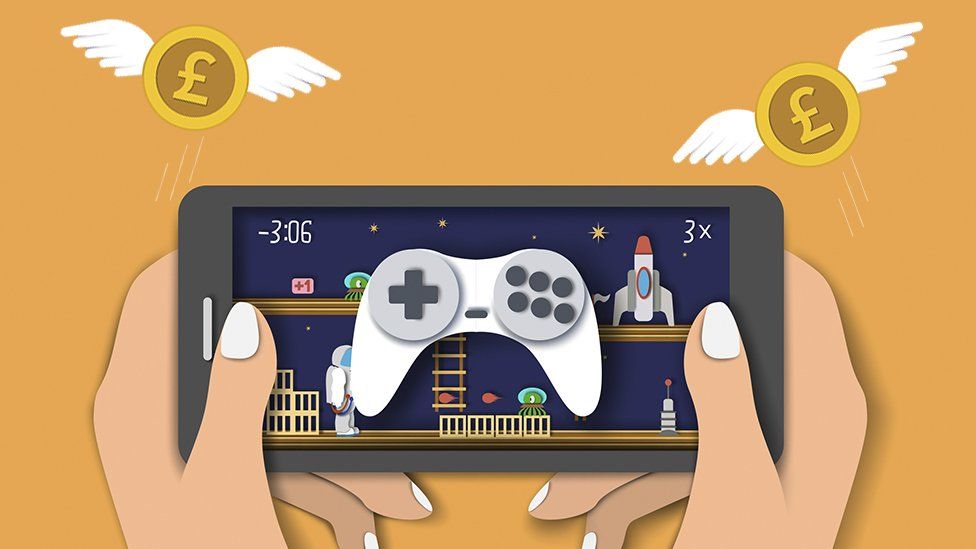
image copyrightGetty Images
We know more people are playing video games in the pandemic.
Not all of those will be sitting down to play on their consoles or PCs.
Recent research suggests that one in two people with a smartphone will have played a game on their phone in the last week.
How many of those games make money however has been a consistent talking point within the gaming industry for years.
The techniques some developers use to hook and retain players, however, are controversial.
Particularly when games advertised as “free” come with in-app purchases, sometimes known as microtransactions.
“If money hinders you from playing this game that’s posing as free-to-play, but it’s not – that’s what frustrates me,” says Jay-Ann Lopez, founder of Black Girl Gamers, talking on this week’s BBC Sounds Press X to Continue podcast.
“If you want people to pay for your game, give [them] an upfront fee. I would gladly pay for a game to download onto my phone that I’m going to enjoy forever.
“I don’t want to be advertised to all the time. And I think it’s becoming quite dangerous, how advertisements are everywhere.
“When it comes to these mobile games, and they stop you from actually enjoying the game until you pay; I don’t enjoy that kind of financial model.”

image copyrightGetty Images
Research suggests that the amount of money players spent on mobile games globally increased by 13% year-on-year from 2017 to 2018 – with around £50 billion spent on them in total.
Press X to Continue reviewer Inel Tomlinson, has some sympathy for studios trying to make mobile games: “I do think it’s a lot harder for developers to charge upfront costs.
“The latest Professor Layton game came out on mobile before it came out on the Nintendo Switch. And on mobile, it cost twenty quid, and everyone’s like – ‘I ain’t touching that. Twenty quid for a mobile game? You’re having a laugh’.
“It came out on the Switch for £40 – the same game. Everyone bought it.”

Trying to stand out in a saturated mobile game market is hard.
A recent trend in mobile games forces players to wait until they can access certain levels or items – unless, of course, they’re prepared to pay for the privilege – and it’s these kinds of techniques that irritate some gamers.
“In certain mobile games, for instance, you play for ten minutes. And then it’s like, ‘oh, you’ve now run out of lives’,” says comedian Glenn Moore.
“Your lives replenish in 24 hours, or you can buy some now and I’m like, ‘is this a game being really irresponsible about my finances? Or is the game being really responsible for my playtime?’
“I think it’s the first one. It’s definitely the first one.”
“[Developers of mobile games] have got to make money. So I understand that you’ve got to think of new ways of doing it,” says podcast host Steffan Powell.
“When monetisation gets in the way of the experience? That’s when I start questioning it.”
But while there is so much money to be made there will still be plenty of games that rely on this funding model.
Jay-Ann hopes that she can overcome her frustration to experience some of the games that are out thereon mobile devices


